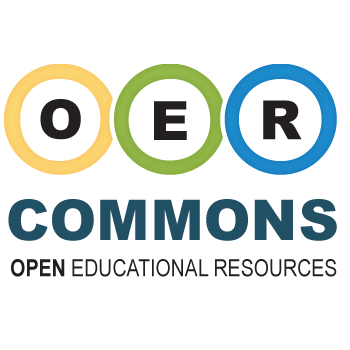Artificial Intelligence (AI) Library Guide
- AI Home
- AI Tools
- Using AI tools effectively
- Prompt Strategies
- Ethical Use of AI
- Citing generative AI
- Further reading
- AI Seminar
- FAQ's
Student guide to AI
More AI topics for librarians
Browse related articles from Elsevier Library Connect:
- Key components of developing AI literacy at your institution covers the fundamentals you need to begin learning more about AI and support your user's education.
- Addressing bias in AI-fueled knowledge systems discusses the way librarians and researchers are working together to combat the biases in AI models.
- The role of AI in library services explains how the application of machine learning and other techniques in research offers opportunities for libraries to expand their services.
Academic Articles
AlAfnan, M. A., Dishari, S., Jovic, M., & Lomidze, K. (2023). ChatGPT as an Educational Tool: Opportunities, Challenges, and Recommendations for Communication, Business Writing, and Composition Courses. Journal of Artificial Intelligence and Technology, 3(2), 60–68. https://doi.org/10.37965/jait.2023.0184
Al-Sofi, M. A., & Bagash, B. (2024). Artificial intelligence-powered tools and academic writing: to use or not to use ChatGPT. Saudi Journal of Language Studies, 4(3), 145–161. https://doi.org/10.1108/SJLS-06-2024-0029
Association of College and Research Libraries. (2025). ACRL AI Competencies for Library Workers Task Force. acrl_ai_competencies.pdf
arroll, A. J., & Borycz, J. (2024). Integrating large language models and generative artificial intelligence tools into information literacy instruction. The Journal of Academic Librarianship, 50(4), 102899. https://doi.org/10.1016/j.acalib.2024.102899
Chatikobo, M. V., & Pasipamire, N. (2024). Readiness to embrace artificial intelligence in information literacy instruction at a Zimbabwean University. Cogent Education, 11(1). https://doi.org/10.1080/2331186X.2024.2425209
Chaudhuri, J., & Terrones, L. (2025). Reshaping Academic Library Information Literacy Programs in the Advent of ChatGPT and Other Generative AI Technologies. Internet Reference Services Quarterly, 29(1), 1–25. https://doi.org/10.1080/10875301.2024.2400132
Chen, L., & Shimada, A. (2023). Designing Worksheet for Using ChatGPT: Towards Enhancing Information Retrieval and Judgment Skills. 2023 IEEE International Conference on Teaching, Assessment and Learning for Engineering (TALE), 1–4. https://doi.org/10.1109/TALE56641.2023.10398310
Cotton, D. R. E., Cotton, P. A., & Shipway, J. R. (2024). Chatting and cheating: Ensuring academic integrity in the era of ChatGPT. Innovations in Education and Teaching International, 61(2), 228–239. https://doi.org/10.1080/14703297.2023.2190148
Cox, A. (2024). Academic librarian competencies and artificial intelligence. South African Journal of Libraries and Information Science, 90(2), 1-9. https://hdl.handle.net/10520/ejc-liasa_v90_n2_a14
Cox, A. (2023). How artificial intelligence might change academic library work: Applying the competencies literature and the theory of the professions. Journal of the Association for Information Science and Technology, 74(3), 367–380. https://doi.org/10.1002/asi.24635
Cox, A., & Mazumdar, S. (2024). Defining artificial intelligence for librarians. Journal of librarianship and information science, 56(2), 330-340. https://doi.org/10.1177/09610006221142029
Dwivedi, Y. K., Kshetri, N., Hughes, L., Slade, E. L., Jeyaraj, A., Kar, A. K., Baabdullah, A. M., Koohang, A., Raghavan, V., Ahuja, M., Albanna, H., Albashrawi, M. A., Al-Busaidi, A. S., Balakrishnan, J., Barlette, Y., Basu, S., Bose, I., Brooks, L., Buhalis, D., … Wright, R. (2023). Opinion Paper: “So what if ChatGPT wrote it?” Multidisciplinary perspectives on opportunities, challenges and implications of generative conversational AI for research, practice and policy. International Journal of Information Management, 71, 102642. https://doi.org/10.1016/j.ijinfomgt.2023.102642
Galindo-Domínguez, H., Campo, L., Delgado, N., & Sainz de la Maza, M. (2025). Relationship between the use of ChatGPT for academic purposes and plagiarism: the influence of student-related variables on cheating behavior. Interactive Learning Environments, 1–15. https://doi.org/10.1080/10494820.2025.2457351
Garcia Castro, R. A., Mayta Cachicatari, N. A., Bartesaghi Aste, W. M., & Llapa Medina, M. P. (2024). Exploration of ChatGPT in basic education: Advantages, disadvantages, and its impact on school tasks. Contemporary Educational Technology, 16(3), ep511. https://doi.org/10.30935/cedtech/14615
Garnier, M., Cussac, M., Delaune, C., Espy, C., & Papon-Vidal, L. (2024). The Pivotal Role of Libraries in Sustainable AI Development. The Canadian Journal of Information and Library Science, 47(2), 137–149. https://doi.org/10.5206/cjils-rcsib.v47i2.17699
International Federation of Library Associations and Institutions. (2020). IFLA Statement on Libraries and Artificial Intelligence. https://repository.ifla.org/handle/20.500.14598/1646
Lo, L. S. (2023). AI policies across the globe: Implications and recommendations for libraries. IFLA Journal, 49(4), 645–649. https://doi.org/10.1177/03400352231196172
Madunić, J., & Sovulj, M. (2024). Application of ChatGPT in Information Literacy Instructional Design. Publications, 12(2), 11. https://doi.org/10.3390/publications12020011
Mallikarjuna, C. (2024). An Analysis of Integrating Artificial Intelligence in Academic Libraries. DESIDOC Journal of Library & Information Technology, 44(2), 124–129. https://doi.org/10.14429/djlit.44.02.18958
Naamati-Schneider, L., & Alt, D. (2024). Beyond digital literacy: The era of AI-powered assistants and evolving user skills. Education and Information Technologies, 29(16), 21263–21293. https://doi.org/10.1007/s10639-024-12694-z
Ndungu, M. W. (2024). Integrating basic artificial intelligence literacy with media and information literacy in higher education. Journal of Information Literacy, 18(2), 122–139. https://doi.org/10.11645/18.2.641
Oyedokun, T. T. (2025). Reimagining libraries in the fifth industrial revolution (5IR): The impact of robotics, artificial intelligence (AI), metaverse, blockchain, and emerging technologies. Business Information Review. https://doi.org/10.1177/02663821251328839
Shahzad, K., Khan, S. A., Iqbal, A., Ahmed, S., Javeed, A. M. D., & Mohamed, O. (2025). Factors influencing the adoption of artificial intelligence in libraries: A systematic literature review. Information Development. https://doi.org/10.1177/02666669241313368
Subaveerapandiyan, A., Vijay Kumar, R., & Prabhu, S. (2024). Marine information-seeking behaviours and AI chatbot impact on information discovery. Information Discovery and Delivery. https://doi.org/10.1108/IDD-10-2023-0119
Zou, X., Su, P., Li, L., & Fu, P. (2024). AI-generated content tools and students’ critical thinking: Insights from a Chinese university. IFLA Journal, 50(2), 228–241. https://doi.org/10.1177/03400352231214963
Journals on AI
- Last Updated: Nov 17, 2025 2:42 PM
- URL: https://libguides.cut.ac.cy/ai_guide
- Print Page





